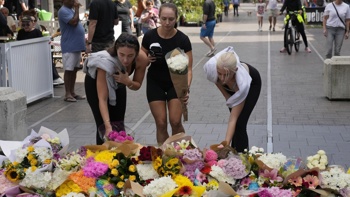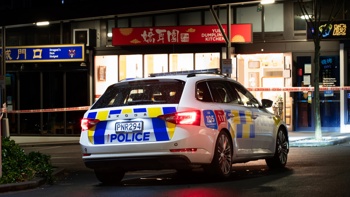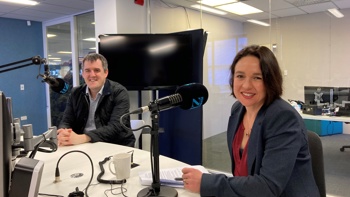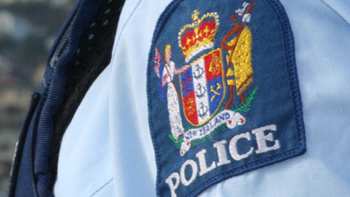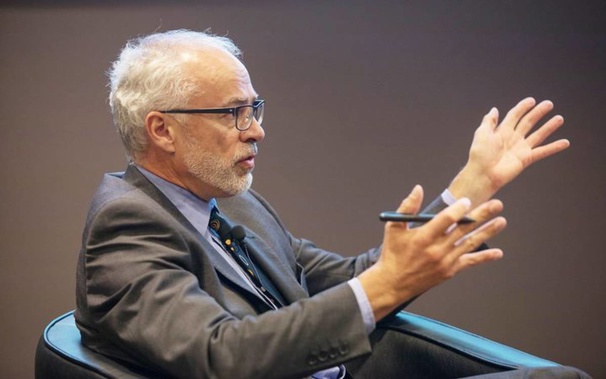
A Melbourne epidemiologist says the increased restrictions that came into force last night were "overdue", with the state of Victoria trying to control a second wave of Covid-19 cases.
A stage four lockdown was imposed across the city from last night to try and stop the rapid spread of Covid-19, while regional Victoria will return to stage three restrictions from Thursday. Victoria's chief health officer described the announcement as a "shock and awe" move.
Professor Tony Blakely told Morning Report it would have been good to see the state go harder earlier and the numbers kept going high because of complacency.
A quarter of those who were meant to be in isolation were not found at home when visited by the authorities, he said.
Despite building up contact tracing capabilities early on to deal with any outbreaks, that had "clearly failed", he said, with daily cases exceeding the state's capacity.
"That means we're getting more and more of the cases of community transmission - the mystery cases as Premier Andrews calls them, the ones where we don't know where it came from. We're well over 50-a-day of those, so we've lost control of the contact tracing, therefore we need a stage four sort of lockdown."
Even the contact tracing app had proved to be hopeless in the face of the second wave, Dr Blakely said.
"As best as we can tell, [it] hasn't assisted contact tracing teams much.
"There's good research showing that a well-functioning app will help you with contact tracing and you need every bit of help you can get."
On the other hand, New South Wales had done a "phenomenal" job so far in its contact tracing efforts, he said, but they were now also being pushed to their limits with several areas affected.
"NSW is tinkering on the edge at the moment."
Whether New Zealand would be able to handle any community transmission outbreak on a big scale is yet to be seen. But Dr Blakely said he believed it had a lot to do with luck as well as the capacity and strategies.
"There's a lot of luck. The virus has a mind of its own or stochastic if you like. For example in the quarantine leakage here, it first went out through some security guards and happened to get to a couple of super spreaders early on, and that type of bad luck early on can just tip you right over the edge.
"There's no way you can be confident with [an outbreak of] 100 that you'll get on top of it, because a third of the people who are asymptomatic and the other people who are going to be symptomatic are infectious for one to two days before they become symptomatic."
He said one thing Melbourne had done really well, and New Zealand could learn from, was the quick adaptation to masks. They need to be stockpiled in suburbs so that people had quick access to them within 24 hours should a situation occur, he said.
While the stage four restrictions in Melbourne are not exactly like New Zealand's level 4 lockdown, they are similar. Dr Blakely said the difference would be that there was partial opening of some services - including takeaways under strict controls - and workplaces divided into three tiers between essential, retail and the middle tier, which would be allowed to open.
The New Zealand government had also indicated early on that it would consider region or city-wide lockdowns if the situation called for it.
However, Dr Blakely said hotspot shutdowns was a strategy that he now did not see in a great light, and if it happened in New Zealand it would need to be stringent.
"For example when Queensland tries to stop people from coming in from NSW from hotspots, they're easily evaded. So someone could turn up to their parents' place in the rural area of NSW and then jump across the border. That's the first thing, is that we have to allow for people behaving badly, unfortunately.
"The virus is always ahead of you. In the Melbourne situation when we locked down 10 or 12 postcodes, yes the numbers were high there, but of course, they were also starting to go up in the areas outside of the hotspots, because the virus is always a week or two ahead of you.
"So back to the New Zealand circumstance, if you had a leakage from a quarantine ... you would want to have a wide hotspot. So if there was one leakage into Auckland you'd probably want to first put into level 3 lockdown half of Auckland or all of Auckland. You'd need to have a very wide geographic range to get ahead of the virus.
"Both for the fact that the virus may have jumped out of the identifiable hotspot and be spreading silently but also because of the travel. Unless you put a really hard ringfence around with military and police, completely sealing off the suburbs ... you have to extraordinary measures. So the hotspot strategy is looking not that great."
'We can't rely on other countries telling us positive cases have happened'
Infectious diseases specialist from Auckland University Siouxsie Wiles also agreed that if Victoria had hampered down earlier on, then this might not have happened.
"The more opportunity you give for the virus to spread, the larger the numbers will grow."
Dr Wiles told Morning Report it looked as though the state was hoping the previous restrictions - brought in amid the second wave of cases - would ease the situation.
"Even now, they're not going into something as restricted as we did. So it's going to take longer for the numbers to start to drop."
Community testing was vital to ensuring any type of regional or city lockdown would be viable, she said.
"That gives you an indication of where things are happening. And the problem with this virus is it's got this essentially two-week lag, where you only start to see cases that reflect infections that are happening two to 10 days before. So sometimes if you focus on a particular small area, you might be missing things that have happened."
Currently, New Zealand has gone 93 days with no evidence of community transmission of Covid-19. Although the Ministry of Health took the step to further ensure that by following up with individuals who had travelled from New Zealand and later tested positive overseas.
Dr Wiles said she had wished for surveillance tracing and testing on those cases to be done faster, but added "one of the issues seems to be getting a notification from overseas when there is a case that tests positive."
"It seems like there is no good mechanism to report that information back and that's probably why there's been this big delay of several weeks."
"It shows we have to be vigilant here, we can't rely on other countries telling us that positive cases have happened. And frankly if positive cases are being detected in travellers, we would be expecting to see them here too, and we would expect to start seeing people turn up in hospitals, so we need to make sure we keep that community surveillance going."
Prime Minister Jacinda Ardern in her interview with Morning Report said a lag in other countries notifying New Zealand of positive cases that could have links here does happen.
By RNZ
Take your Radio, Podcasts and Music with you






